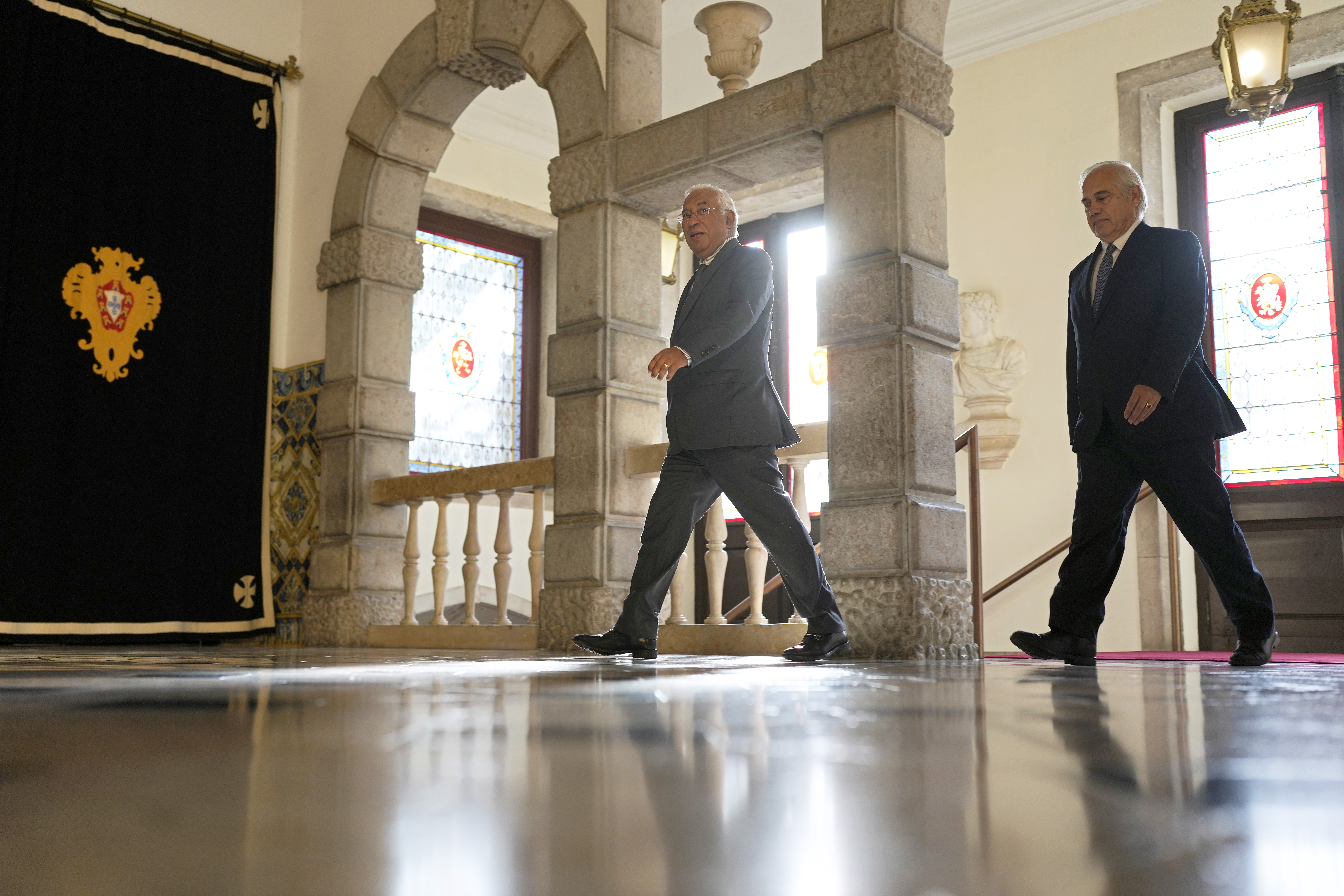Portugal
Portugal's Prime Minister Costa resigns - new elections in March 2024

Der scheidende portugiesische Premierminister Antonio Costa (Mitte) kommt zur Sitzung des Staatsrats, die von Präsident Marcelo Rebelo de Sousa einberufen wurde.
© picture alliance / ASSOCIATED PRESS | Armando FrancaAntónio Costa, Portugal's prime minister since 2015, has resigned amid allegations of involvement in influence peddling, corruption and questionable behavior in the awarding of energy projects. His resignation came after it was announced that the Supreme Court had opened an investigation against him. The investigation focused on his role in the awarding of two contracts for lithium mining in Montalegre and Covas do Barroso, as well as an initiative to produce green hydrogen in Sines. The chain of events began on Tuesday morning with the arrest of two people close to Costa: his chief of staff Vítor Escária and the entrepreneur Diogo Lacerda Machado.
Following these arrests, the Attorney General's Office revealed that Costa himself is also the subject of a separate investigation by the Supreme Court for his role in promoting companies with links to Portugal's energy transition. João Galamba, the Minister for Infrastructure, and Nuno Lacasta, the President of the Portuguese Environment Agency, were among those questioned as part of this investigation.
In response to these accusations, the conservative (sic!) Social Democratic Party (PSD), the main opposition party in Portugal, called for an immediate meeting of its standing committee. Rui Rocha, the leader of the FNF partner party "Liberal Initiative", meanwhile commented on the events with the words: "I don't believe there is any other solution than the dissolution of the Assembly of the Republic and new elections so that the Portuguese can express their opinion".
Demands for resignation
Rocha called on Costa to resign and referred to the seriousness of the suspicions in his close circle. André Ventura, the chairman of the far-right party Chega ("Enough is enough"), demanded the immediate dismissal of Minister João Galamba and called on Costa to make a statement to the nation.
According to media reports, the investigation is part of an ongoing probe by the Central Investigation and Prosecution Authority , which was launched at the end of 2019 following an anonymous complaint. The aim is to determine whether certain Portuguese companies (such as EDP, Galp and REN) received preferential treatment in their participation in a green hydrogen project in Sines.
In addition, the investigation extends to another major lithium project in Covas do Barroso, near the Galician border. This was approved by the Portuguese environmental authority despite almost a thousand objections and opposition from a UN rapporteur. Although the environmental authority recognized the potential risks of a UN designation, British company Savannah Lithium greenlit the project. The authority only expressed concerns about compatibility and integration into the landscape.
New elections announced in March
The investigation into the alleged irregularities concerns both the current Environment Minister Duarte Cordeiro and his predecessor João Pedro Matos Fernández. Galamba had already been under scrutiny for several months due to his handling of the political crisis surrounding the airline TAP. This has already led to his appearance before a parliamentary committee of inquiry.
At the beginning of January, the Attorney General's Office confirmed that there was an investigation into companies related to lithium and green hydrogen. When Minister Galamba was questioned about this procedure, he replied: "I was never involved in this absurd procedure, precisely because it is groundless and unfounded", as Público reported on Tuesday.
As part of the investigation, the communications of former Environment Minister João Pedro Matos Fernández were intercepted by court order. Of the several intercepted conversations, four involved the Prime Minister António Costa. Three of these were disregarded as they were considered irrelevant to the investigation. However, in a conversation recorded on December 28, 2020, Costa and his minister discussed lithium and green hydrogen projects, the possibility of attracting EU funds and significant investments, as reported by the weekly Expresso.
On Thursday, President Marcelo Rebelo de Sousa announced his decision to dissolve parliament in December and called for new elections for next March. From a liberal perspective, it is worrying that Chega could make significant gains here and that it may not be possible to form a government without the party. The current corruption scandal plays perfectly into Chega's hands as, like many right-wing parties, they are marketing themselves as the only real alternative to the political establishment.
Sebastian Camacho, FNF Madrid.
